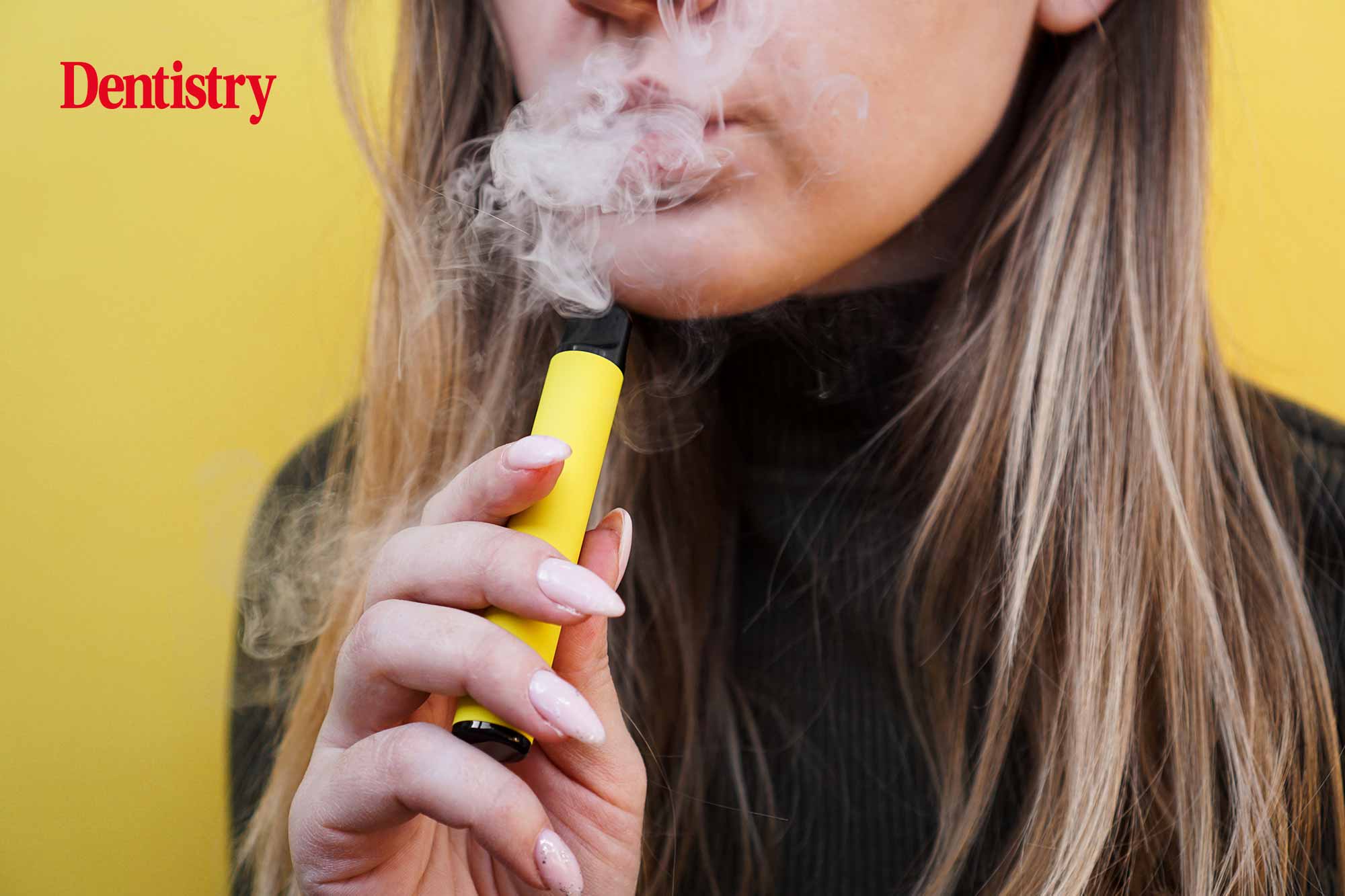
Patients who use vaping devices are more likely to develop decay, new research has found, showing a ‘significant difference’ in caries risks.
New research has linked vaping to a higher risk of decay.
Researchers from the school of dental medicine at Tufts University found that patients who used vaping devices were at a higher risk of developing decay.
The research found a ‘significant difference’ in dental caries risk levels between patients who vape and those who do not.
Some 79% of the vaping patients had a high-caries risk. This is compared to around 60% of non-vaping patients.
However, the vaping patients were not asked which devices used, although nicotine is more common than THC.
Karina Irusa, assistant professor and lead author on the paper, said that these new findings ‘serve as an alert that this once seemingly harmless habit may be very detrimental’.
Dentistry’s top stories
- Good Morning Britain’s Richard Madeley claims NHS dentists ‘can’t do extractions’
- ‘Don’t shoot the messenger’ – GMB presenter responds following outrage over comments on NHS dentistry
- The Secret Dentist – the damaging NHS contract and ‘detached’ GDC
- Dentistry Cribs – The Dental Architect
- Celebrating National Dental Nurses Day 2022.
Vulnerable teeth
The researchers analysed data from more than 13,000 patients over the 16 years old.
This new study follows an update on the impact of vaping from earlier this year. It stated that, while there is little clinical evidence to back it up, the caries risk is an important area to watch.
In addition, data shows that over nine million American adults and two million teenagers use tobacco-based vaping products. As a result, this has sparked concerns about the number of vulnerable teeth.
Karina stated that the new research could be just a hint of the damage vaping does to the mouth.
‘The extent of the effects on dental health, specifically on dental decay, are still relatively unknown. At this point, I’m just trying to raise awareness.’
While the exact link between vaping and dental decay is unknown, some have suggested that the sugary content of vaping liquid sticks to the teeth after it is inhaled.
A study in PLOS One journal compared the properties of e-cigarettes to sweets and acidic drinks. In addition, other studies have found that vaping aerosols cause more bacteria in the mouth because it changes the oral microbiome.
More research needed
Despite this, Karina believes that further studies need to be done, particularly on how vaping affects the microbiology of saliva.
‘It’s important to understand this is preliminary data.
‘This is not 100% conclusive, but people do need to be aware of what we’re seeing.’
In addition, the researchers have recommended that dental professionals ask patients about their vaping habits as part of their medical history.
As well as this, a ‘more rigorous caries management protocol’ could be considered for patients who vape.
This could include prescription-strength fluoride toothpaste, fluoride rinse, fluoride applications, and more regular checkups.
Follow Dentistry.co.uk on Instagram to keep up with all the latest dental news and trends.


